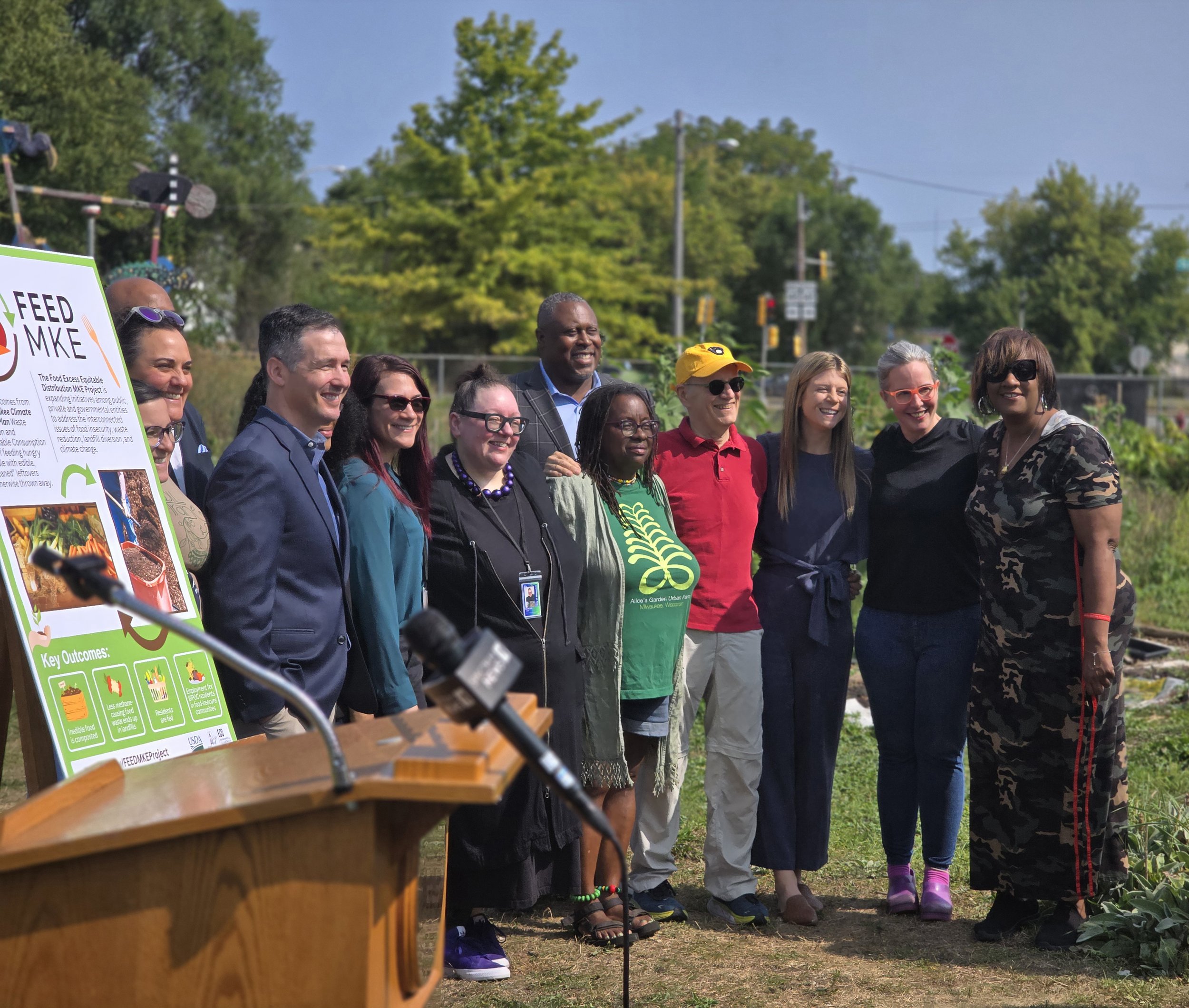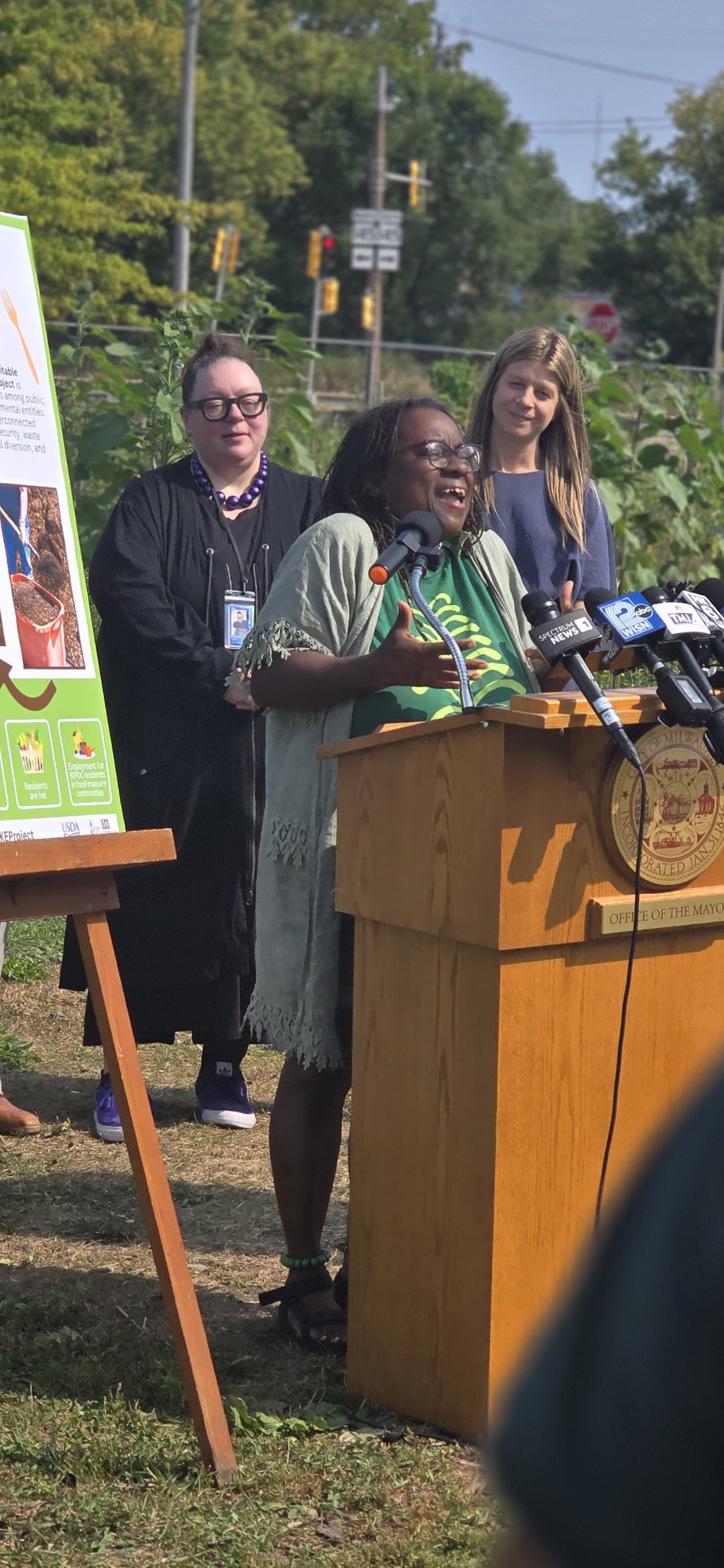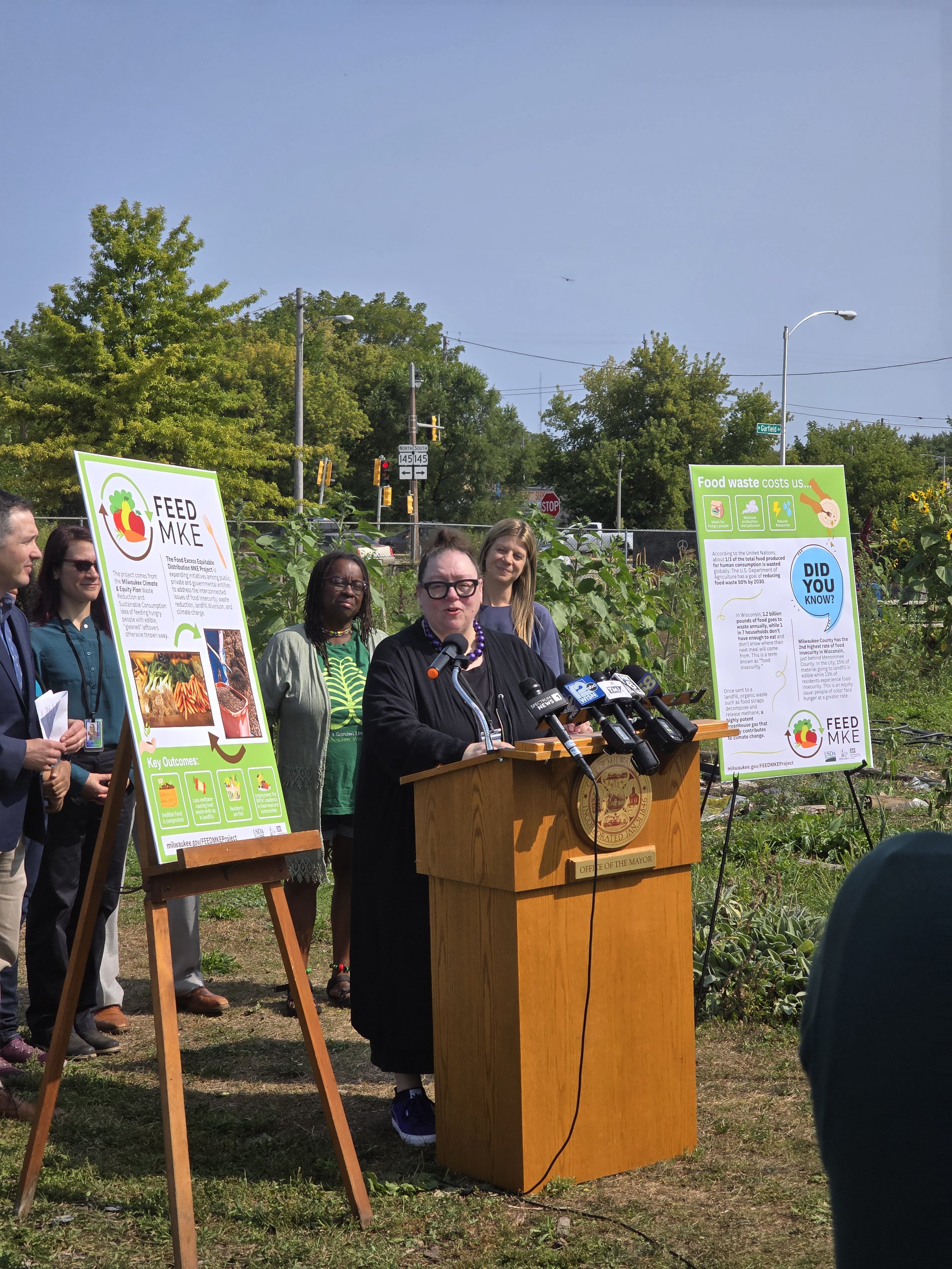"A Delicious Way To Make A Meaningful Difference" - Snap Shot Press Release
/ALl photos by copywrite magazine
Food waste & food insecurity are legacy themes in Milwaukee’s urban landscape. For decades, community members have strived to find equitable ways to nourish our neighborhoods. From mom-and-pop bakeries to our regionally sourced dairy [Can we get a cheese curd?], the communal “Friday Fish Fries” [a Wisconsinite staple], and urban farming plots that bring us fresh produce from right up the street, food is a part of our story.
Tuesday’s [September 10th, 2024] at Alice's Garden Urban Farm [2136 N 21st St, Milwaukee, WI 53205], FEED MKE announced it’s Food Waste Reduction + Compost Mini Grants project, which allows $127,500 to be reallocated to Milwaukee-based community organizations in support of Food Recovery and Composting.
pictured: Erick Shambarger,
Erick Shambarger, Director of Environmental Sustainability for the City of Milwaukee, who leads the Environmental Collaboration Office (ECO) kicked off the event by rooting us in reality. “In Wisconsin, 1.2 billion pounds of food goes to waste annually while 1 in 7 households experience food insecurity”, Shambarger shared in a reflection of the Wisconsin Department of Natural Resources 2021 report. These numbers, in conjunction with Milwaukee’s socio-economic relationship with food deserts, should be alarming to all citizens, hence FEED MKE’s charge for change.
The Food Excess, Equitable Distribution Coalition (FEED MKE), Food Waste Reduction + Compost Mini-Grants, were made possible by the USDA-Compost & Food Waste Reduction Grant. However, the concept came from the community member feedback on what our city truly needs.
pictured: Venice Williams
Venice Williams, Executive Director of Alice’s Garden, noted that “the city of Milwaukee is full of abundance. . .”, which we don’t hear enough. This abundance, present in the vast backdrop the urban garden created for this event, is also clear in the work local organizations and individuals do to keep our community fed [with or without the means]. “My family can tell you anytime I go to my garbage to throw away something I ask for forgiveness”, Williams testified as characteristic of noticed waste projects like these may prevent.
FEED MKE is charged with several tasks including conducting outreach on how food waste impacts climate change, fostering relationship-building between gleaners and food pantries, food kitchens, restaurants, community-based organizations, etc., as noted on their official city of Milwaukee web portal [milwaukee.gov/FEEDMKEMiniGrants]. However, the introduction of the mini-grants and future Food Saver Challenge through the Mayor’s Office will allow community and private sector contributions to these initiatives.
pictured: Andi Sciacca
Andi Sciacca, EOC’s Environmental Sustainability Program Coordinator, made it clear that the current funding is not meant to deter the department from doing its work but instead, “redistributes it to the people already doing the work” and “help people recover more food before it becomes waste”.
Those looking to apply for the grant should be clear on their ability to think communally & collaboratively. Funding Opportunities include
Food Recovery: Grants of $5,000-$30,000 for 4-8 organizations to support food recovery capacity-building through partnerships with local food-based businesses, food banks, and community-based organizations.
Composting: Grants of $5,000-$20,000 for 3-5 organizations for on-site composting supplies or to institute subscription-based composting services at community locations.
Workshops or “information sessions” will be available at several sites around the city throughout October, where applications must be submitted by November 22nd, 2024, for a December Award announcement.
So as a creative media outlet that #SupportsTheLocal & firmly believes that sharing a meal with someone can humanize them, we hope to see you pull up a seat at the table to feed our community and sustain our planet.
Because it is. . .
“A delicious way to make a meaningful difference". - Andi Sciacca
Lexi S. Brunson | Editor-in-Chief /CW









